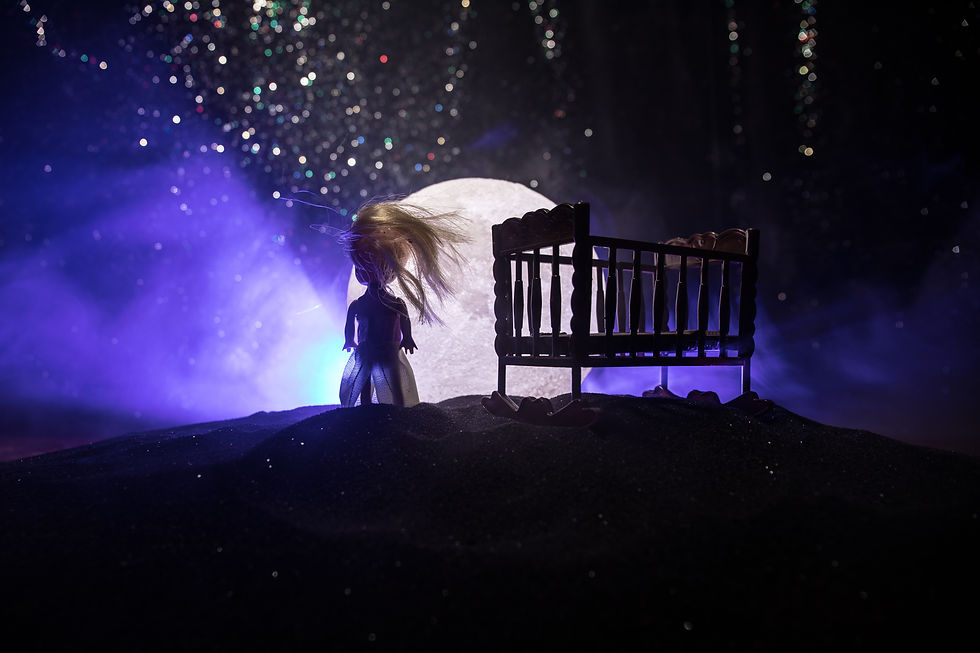Improve Your Child's Sleep (and your own) With These 19 Soothing Techniques
- Nanci J Bradley
- Nov 3, 2019
- 4 min read
Updated: Dec 6, 2024

Lack of concentration, bad behavior, poor immunity and weight gain. Sign me up!
If that sounds silly to you then why do people brag about needing little sleep and scoff at those who claim to get their full 8 hours in every night? Sleep is a precious gift to nourish our bodies and our souls. It helps us concentrate, improves our mood and sorts out our thoughts for us while we rest.

Kids don't understand their need for sleep.They just want to be up and learning all of the time. They don't understand that they learn better when their minds and bodies are well-rested. It's up to us to teach them that.
Here are my 19 best techniques to help kids and adults sleep better. After studying sleep and actually practicing sleep with real children daily for the last 40 years as a professional, I have gathered a few.

Set the stage for success. Get exercise and sunshine in the morning every day.
Eat a balanced meal or snack of protein, slowly digested carbohydrate and fat about 2 hours before you sleep.
Timing is key. Start one hour before sleep at the same time nightly. Turn off all screens. Create a warm and loving routine of self-care, Once you have a routine you like, keep it the same
Gradually diminish contact with the outside world. Enjoy this time..This is your time to care for yourself.

Give yourself or your child praise for resting and letting your bodies wind down.
Read or tell a story in bed.
Breathe and breathe again. Breathing deeply is contagious. Just do it and your child will follow you.
Smile and enjoy the slowing down process, You're being helpful to yourself and your children when you take the time to do this right. We have to set the example to teach ourselves, our children the world to enjoy and treasure sleep.
Practice the art of lying still. Tense up all of your muscles and let them go, focusing on one area of your body at a time. Quietly talk yourself or your child through this.
Learn to enjoy cozy peace. Think about a safe and loving place. Take the time to create this place in your mind and work with your children on their ideas when you're awake. Then use it as a tool when you're falling asleep.
Park your cars. Imagine all of your thoughts as cars driving around your brain at warp speed. Sometime before you sleep, take the time to park your cars by writing a list of things to do. Then you won't have to worry about forgetting anything important the next day. Help your child do this too.

Counting anything helps kids and counting down from 500 helps adults to fall asleep by crowding out other unwanted thoughts. The real trick is not to stay focused but to be able to return to the task over and over again when your thoughts do intervene.
Know that a child's sleep cycle is around 50 minutes and an adults is 90-120 minutes. It's between sleep cycles that we are most likely to wake briefly. I find that many children these days will wake after 37 minutes.
Know that you and your child will wake up many times in the night and you need a quick action to get back to sleep like turning your head or flipping your pillow..You may throw covers on or off, or stick one foot out to regulate temperature. Most of the time you'll just change position slightly and go right back to sleep.

Some adults and children are helped by switching on an auditory only meditation when they don't go back on their own.
Notice your own or your child's waking pattern and make a plan so you get used to falling back to sleep when you need to. For young children, toddlers and infants, you might want to help establish a good habits by noting their waking pattern and getting into their room just before they wake. When you see them stir, just breathe deeply. Only intervene if they jerk awake or start to sit up. Then you can get them to lie still again. Repeat this nightly until they get used to going back to sleep on their own at that time.
Notice your own waking pattern and make a plan before you go to sleep of what to do when you find yourself awake. Then you'll know how to help yourself and you won't have to come up with something when you're groggy.
Practice the art of snuggling.

Nanci J Bradley is a child and family educator, author, energy facilitator, family aerobics instructor and all-around fun-loving person. She believes in the power of sleep, lifelong learning, healthy eating, fun and more than anything else, PLAY! She studied early childhood education at Triton College and received her BA in education from Northern Illinois University in 1986. She received her MA in human development from Pacific Oaks College in 2011. She lives and teaches in Madison, WI.








Comments